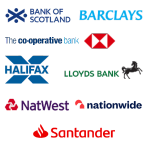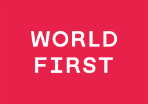Daniel is Founder and CEO and has 20 years of experience in the international finance world focusing on cross-border payments, technology and the property sectors. Daniel is widely quoted as an expert within the money transfer industry including by The Economist, The Wall Street Journal, Reuters, CNBC and Bloomberg. Daniel is passionate about helping consumers and businesses find the best and most efficient ways to transfer money internationally.
Frequently asked questions
How we calculate the savings
Contents
How to send money to Venezuela and to transfer money from Venezuela
Officially known as the Bolivarian Republic of Venezuela, this oil-rich South American country has struggled in recent years to maintain a stable economy as its democratic processes and institutions have been under attack from authoritarian regimes. Currently, Venezuela’s economic policies allow for expanding state control, which has led to stricter currency exchange controls and lowered private sector investment and production. Due to Venezuela’s heavy reliance on the petroleum industry for revenues and foreign direct investment, fluctuating global oil prices have contributed to a sense of economic instability. The country’s instability is reflected in its high levels of violent crime, high inflation rates, basic consumer goods shortages, lack of medical supplies and medicine, and increasingly politicized military forces.
Since its discovery in the early 20th century, Venezuela has been the holder of the world’s largest oil reserves and one of the leading oil exporters. Despite this, the country has struggled with high inflation and poverty rates, and high levels of economic inequality. With petroleum prices lowered throughout the world in 2010, Venezuela’s economy once again began to struggle, leading to a currency devaluation in 2013 and shortages of consumer goods. The country officially entered into recession in 2014, and by 2015 had the world’s highest inflation, with a rate surpassing 100%. Civil unrest led to the Venezuelan protests of 2014-2015.
As Venezuela grapples with internal problems, it still maintains membership in a number of international trade and political organizations, including the United Nations (UN), International Monetary Fund (IMF), the G-15, G-24, and G-77, the World Bank, World Health Organization (WHO), Organization of American States (OAS), and World Trade Organization (WTO). The country began a two-year term on the UN Security Council in January of 2015 and is a founding member of the Organization of the Petroleum Exporting Countries (OPEC).
Venezuela’s money transfer regulations
Sending money into or out of Venezuela is overseen by the Central Bank of Venezuela, which sets fiscal policy and monitors the performance of Venezuela’s official currency, the bolivar fuerte (VEF). Currently, Venezuela authorizes three official FX mechanisms to sell US dollars (USD) to private firms and individual investors, or to make international transfers. The country’s currency commission, the CENCOEX, oversees two of these mechanisms. Potential investors must be registered with one of these two organizations to make money transfers into or out of Venezuela. The Central Bank of Venezuela operates the third FX mechanism, the SIMADI, created in 2015. SIMADI provides investors three types of FX exchanges: retail FX trading, wholesale FX trading, and dollar-denominated trading for brokers and commercial banks.
Since 2003, the bolivar fuerte has been pegged to the USD, closely monitored by Venezuela’s central bank, which ensures all financial institutions operating within the country follow relevant regulations for international financial transactions. Investors who wish to transfer currency into or out of Venezuela using one of the three FX mechanisms must also hold dollar-denominated checking accounts in a Venezuelan bank.
Foreign Investment in Venezuela
Venezuela’s government has in recent years begun to impose harsher regulations on foreign direct investment (FDI) in the country. From stricter currency controls and state-monitored FX trading systems to increasing state control over the economy, Venezuela’s decisions have led to a deteriorating investment climate for potential foreign investors.
Although US and global investors have traditionally invested in Venezuela’s energy and manufacturing sectors, the government’s tightening control over foreign currency transactions through the three foreign exchange trading mechanisms it runs presents significant obstacles for foreign investors wishing to pursue investment opportunities within Venezuela today.
Venezuela’s monetary and regulatory authority
The Venezuela’s government and the Central Bank of Venezuela are responsible for setting the country’s fiscal and economic policies and ensuring adherence to domestic and international financing regulations. The Central Bank of Venezuela is responsible for supervising the domestic banking system and monitoring all financial transactions, including the operation of cash and electronic payments. It is also responsible for monitoring the bolivar fuerte’s performance in the currency markets.
Currency
Venezuela’s currency, the bolivar fuerte (VEF), became the official currency in January 2008. The bolivar fuerte can be subdivided into 100 centimos, its subunit. It replaces the original bolivar, which has been the currency of Venezuela in some variation since 1879. The bolivar goes by the nicknames bolo(s), luca(s), or real(s) and is a fixed, managed currency that is currently pegged to the US dollar.
Common bolivar fuerte currency in circulation today includes the 1, 5, 10, 25, and 50 centesimos coins, and a 1 bolivar fuerte coin. Banknotes circulating include the 2, 5, 10, 20, 50, and 100 bolivar fuerte banknotes.
















